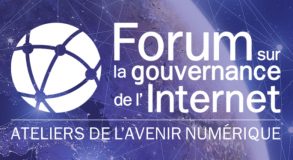Dear Fadi,
First of all I want to congratulate you on the recent annoucement by the NTIA, which comes as a welcome move towards enhanced trust and stability for the global Internet. There is no question that your personal involvement, engagement with many stakeholders at all levels, and the trust you have built with them was a key factor in this announcement taking place now, and in this form.
As you rightly stated, this announcement is not an end, but merely the begining of a journey. As I will not be able to attend the Icann meeting in Singapore, I thought it might be valuable to share with you my current line of thought about the next steps of this process.
1. Establish a clear distinction between Icann as a platform for discussion and Icann as a provider of solutions
The NTIA has turned to Icann to ” convene global stakeholders to develop a proposal to transition the current role played by NTIA in the coordination of the Internet’s domain name system (DNS)“. Icann is being trusted as a platform for this crucial discussion about the transition of the IANA function.
To maintain this trust, Icann will have to resist the trap to use this platform to promote (or be accused of promoting) its own agenda.
There is a very simple way to demonstrate Icann’s commitment to prevent this. It consists in assigning clearly publicly two different leaders within Icann : one in charge of the platform of discusssions, ensuring that it engages all stakeholders and addresses the relevant issues ; the other in charge of promoting Icann’s proposals.
2. Spend time clarifying the current situation with all stakeholders
I have been involved in discussions about IANA, its oversight mechanisms and the roles of different stakeholders for almost 10 years now, within the technical community, with civil society, government representatives, academics etc. There was always only one thing in common between these discussions : the lack of understanding about the current situation.
Ambiguity and, sometimes, myths, are bound to plague the global debate unless some time is specifically assigned to clarify the current arrangements, their performance, and even the issues that were faced in the past. This work has for instance been conducted in a remakably thorough manner by the Framework of Interpretation working group of the ccNSO in the case of delegations and redelegations of ccTLDs.
Many stakeholders, especially long time experts and veterans of Internet governance, will provide ideas and scenarios right away, and consider any look at the past as a waste of time. While it may seem counter-intuitive at first, investing time at the beginning of our process to share that understanding will increase our chances of success.
3. Seek consensus upfront on what accountability means
It can reasonably be anticipated that the word “accountability” will once again be at the center of many discussions around the proposals for the transition of the IANA function. One key criteria to assess proposals will be, for many stakeholders (and I include Afnic), how efficient the proposed accountability mechanisms are.
It is therefore as soon as Singapore that a common understanding should be sought about what accountability means in the context of IANA. One of the strategic panels you have set up came up with very relevant inputs about what accountability could mean. I can only provide my own expectation as a first proposal : the various decisions, policy or operational, made by IANA, should provide any affected stakeholder with the ability to challenge them through a transparent, affordable and independant appeal process. Whatever body administering this process should be empowered to enforce its decisions.
I am fully aware that this is not the case today with the USG role in the IANA function. But we have a historic opportunity to actually improve trust and accountability.
4. Resist launching yet another call for contributions, at this stage.
There was no lack of submissions, ideas and reflections in the last few months : no less than 5 strategic panels, a 1Net coalition with hundreds of monthly emails, 190 Netmundial contributions among others. Many of these reports and submissions touched on IANA. Clearly, the community has already provided time and thought into the issue. There have also been public contributions to NTIA about the IANA contract renewals in the past that are still very relevant.
Therefore, I strongly urge NOT to start this new process with the usual calls for contributions or comments to the community, but rather by providing a thorough and objective analysis of the various issues raised on the topic, as well as an identification of the various existing proposals.
5. In terms of options, think beyond the Icann box
Icann plays a central role today in operating the IANA function. It is now in charge of convening a global dialogue about its transition to a new state. But as you are well aware, Icann is part of an ecosystem, and not all of this ecosystem is within Icann.
While Icann’s Singapore meeting is the perfect place to start the journey towards IANA transition, Icann (as a platform for discussion) must convene the dialogue beyond its traditional boundaries : the Sao Paulo meeting, the 2014 IGF, and other events must appear very clearly in the timeline of the process as important milestones for engagement as well as for the elaboration of proposals.
The same is true for the proposals themselves. Icann, its staff, its constituencies and advisory committees provide many options for implementing the future transition. But what would the global internet community think of a proposal elaborated by Icann, proposiing an Icann-centric solution ? Would that not only transfer the trust issues we are facing from the USG to Icann ? I believe the principle should be set right away that the various roles will include, but no be limited to, Icann.
I am certain you understand that these recommendations are provided in the spirit of contribution and constructiveness, and in the hope that they are useful to you and to your team. Please feel free to share them as you see fit. I will take the liberty of sharing them with fellow community members, as well as within the French internet community in the coming days.
While not attending the Singapore meeting personnally, I will be following remotely, and Pierre Bonis, Afnic’s deputy CEO will be there in person. He recently wrote this blog post and looks forward to contributing to this discussion. Please do not hesitate to sollicit him for any further information or clarification.
I wish you a very successful Singapore meeting and look forward to meeting you next month in Sao Paulo.





